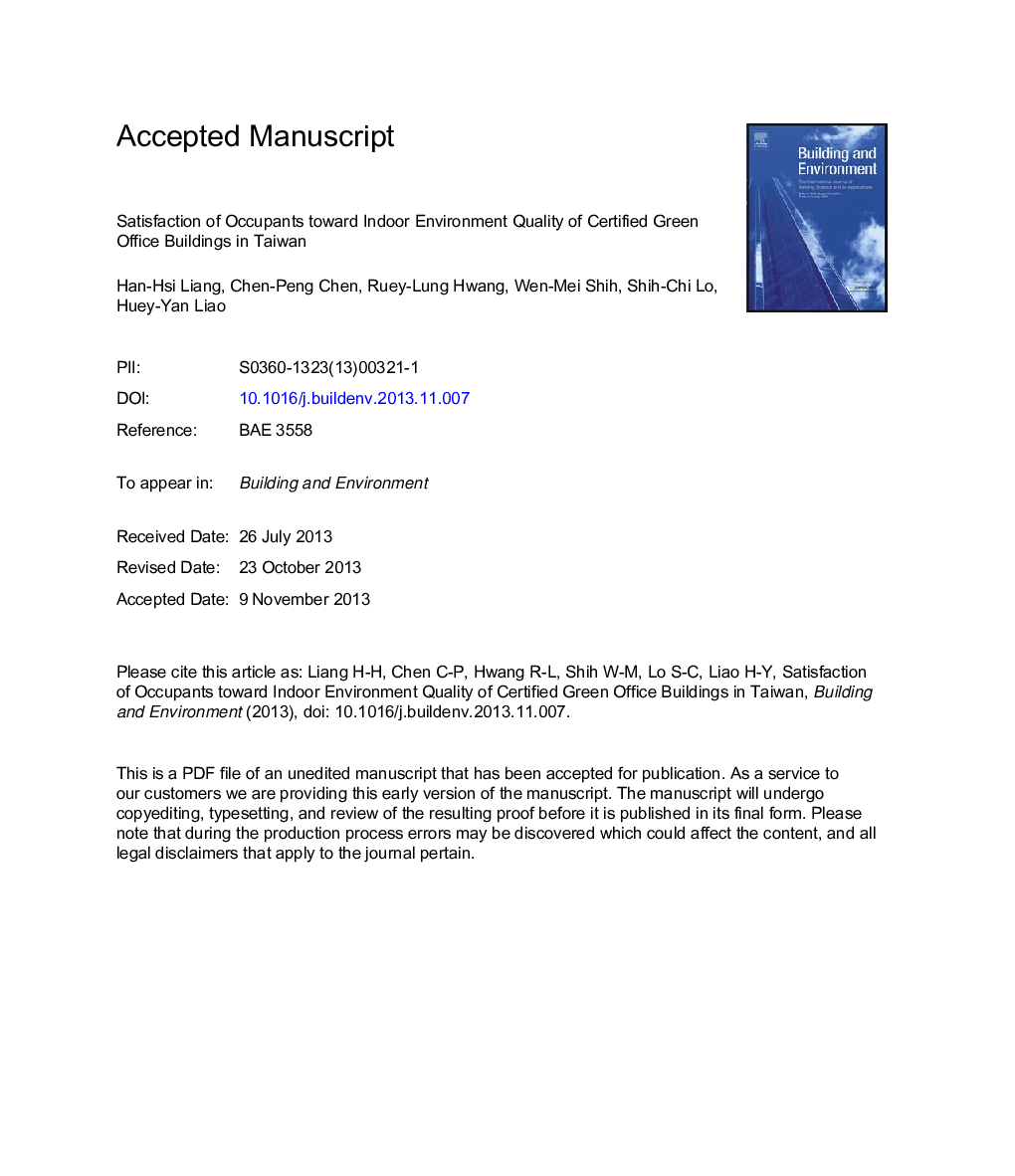| Article ID | Journal | Published Year | Pages | File Type |
|---|---|---|---|---|
| 6700608 | Building and Environment | 2014 | 56 Pages |
Abstract
The preservation of indoor environmental quality (IEQ) is key to the well-being and productivity of office occupants. In Taiwan, the green building certification system established IEQ criteria to evaluate the performance of buildings in acoustics, lighting, ventilation and decoration but not the performance in delivering thermal comfort. This study investigated and compared the green and conventional office buildings in middle Taiwan on various aspects of IEQ during a period of active air-conditioning use. Among the monitored environmental variables, the levels of noise, illumination, and carbon dioxide in both types of buildings were in compliance with international or Taiwan's regulatory standards, but not that of volatile organic compounds. The degrees of overall IEQ satisfaction as well as the proportion of occupants voting for satisfaction in the green buildings were both greater than their counterparts in the conventional buildings. Of the specific areas of IEQ evaluated, including the acoustics, lighting, perception of thermal comfort of the occupants toward the thermal environment, and indoor air quality, a statistically significant difference was found between the mean score of satisfaction in the green buildings and that in the conventional buildings. The occupants sharing a concern on energy conservation were more amenable to slightly deficient IEQ. The system of green building certification in Taiwan was able to facilitate proper IEQ performance of the buildings, although a re-visit of the current criteria to incorporate thermal comfort-related criteria may be adequate.
Related Topics
Physical Sciences and Engineering
Energy
Renewable Energy, Sustainability and the Environment
Authors
Han-Hsi Liang, Chen-Peng Chen, Ruey-Lung Hwang, Wen-Mei Shih, Shih-Chi Lo, Huey-Yan Liao,
